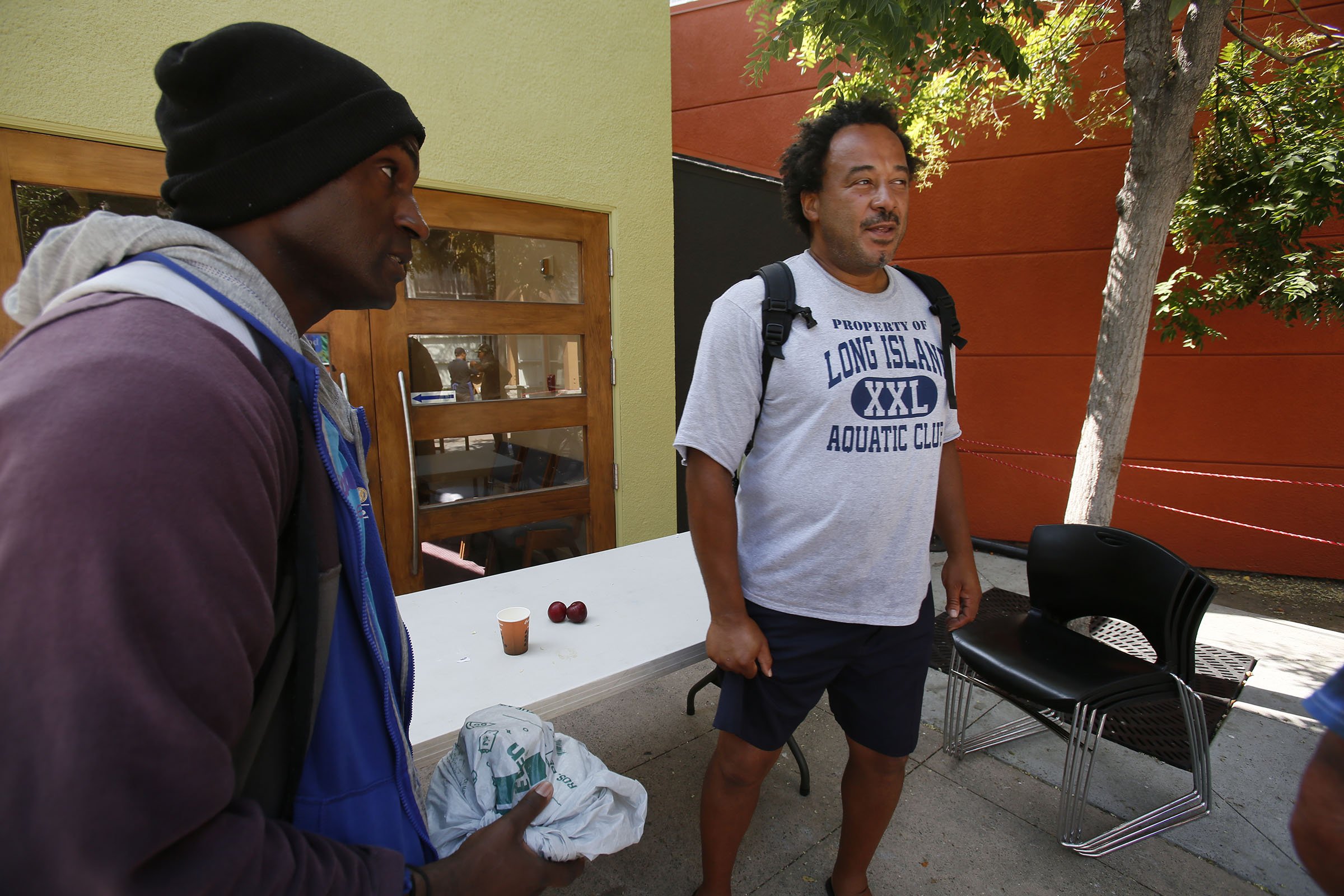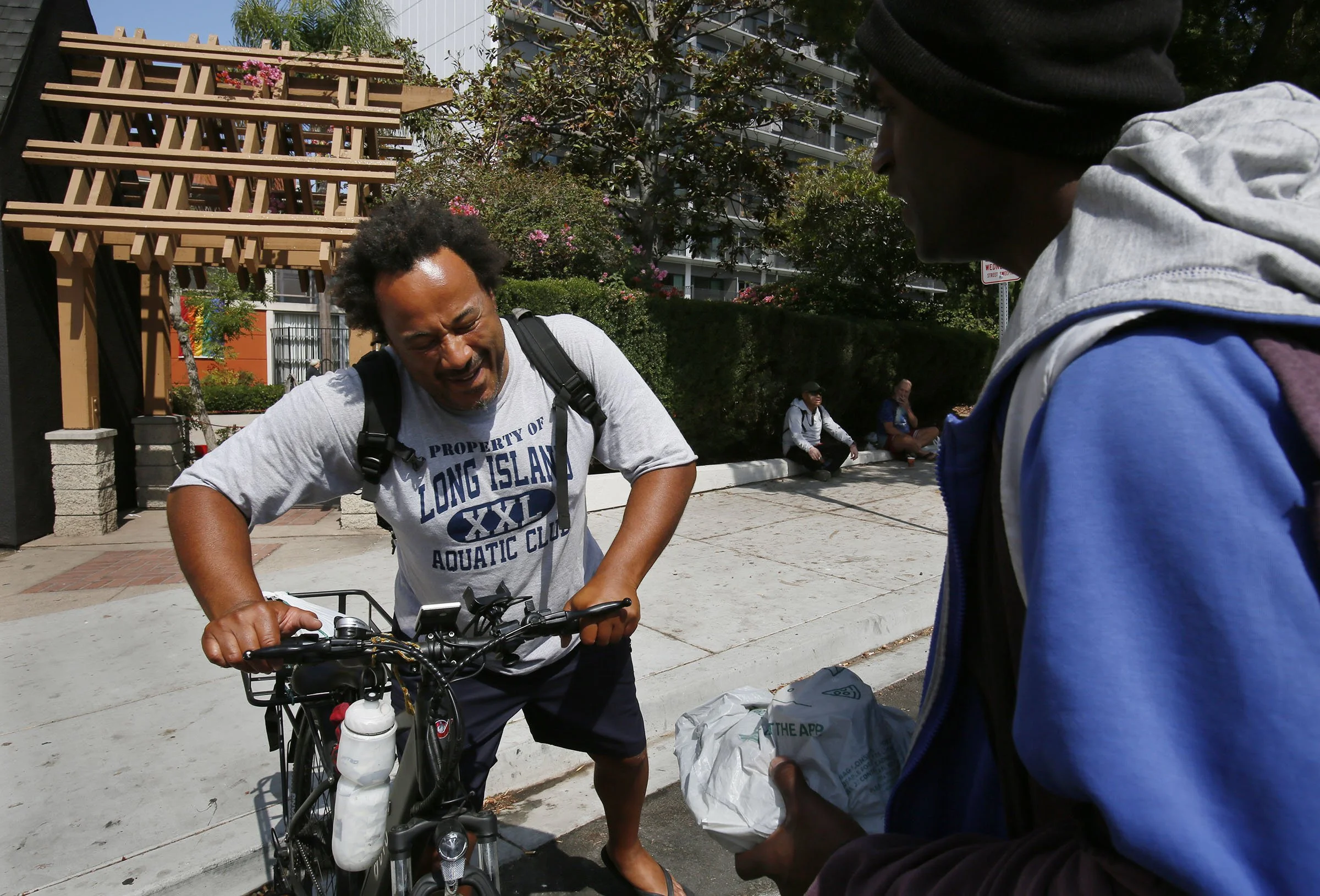Shawn
Shawn Brazill, 51, learned to love cooking around the age of 8. He learned the fine arts of nutrition and seasoning from his mother and grandmother. His grandmother, especially, used cooking as a life lesson - that he shouldn’t be dependent on anyone else (like a spouse) to take care of him. “I should be able to manage making a plate of eggs or a cake. I mean, everyone should,” Shawn said.
His accent gives away being born and raised in the Bronx, New York. His father was an NYPD detective, his mother a senior RN in pediatrics at a large hospital. He has two sisters - one older and one younger - still living in New York. Shawn pursued a career in finance and banking, eventually working at J.P. Morgan, where he was a vice-president for seven years. After that, he began consulting to large financial institutions that needed his expertise regarding complex compliance issues, often charging as much as $1,500 per day. “I was a problem solver. People called me in when they were under review. They knew if they didn’t listen to my advise, there could be serious financial consequences,” he said.
While working in Europe, he met a woman from Sweden, a dentist, and fell in love. They carried on a long distance relationship until finally getting married in 2006 on the Amalfi Coast, traipsing through Capri and Tuscany for a honeymoon, then settling in London. Their home became a hub of social gatherings. “People would come over with pots of noodles and fresh baked bread. We had a huge liquor cabinet, a pizza oven - people came over all the time,” he said. They had a daughter. His wife eventually revealed herself to be what Shawn called “a career student” - someone who never got a real job, but was always taking classes. “She wasn’t earning her side of our living together,” he said, which broke his heart. The couple was going through a divorce just as the COVID-19 pandemic forced a global lockdown.
That emotional turmoil, at the same time he was recovering from surgery after falling on ice and damaging his elbow, was difficult. So when he was allowed to travel again, he came to stay with a cousin in San Diego. But the cousin turned out to be a “raging alcoholic.” So after three weeks, Shawn found himself on the streets. He has no regrets. “The streets taught me about San Diego,” he said. In fact, that same propensity for generous social gatherings in London, and his well-developed skills with cooking, all synthesized to make him a magnet for all kinds of people on the streets in San Diego. One of the first things he did was locate a good free space with public grills. That space was Chicano Park. “I broke bread with anyone who was hungry,” Shawn said. “I traded steaks with MS13 gang members for whiskey.”
Nowadays, he cruises around downtown on his bike looking for resources. He keeps essential belongings that he doesn’t immediately need in one of the transitional storage sites created for homeless individuals. He quickly learned that staying under the freeway bridges is dangerous. Near the libraries, however, people band together and keep watch over each other. Proximity to the library also gives one access to WiFi. Once, in front of the Neil Good Day Center, a HOT officer thought he worked there, and asked why he wasn’t living in one of the shelters. “I told him ‘why would I want to live in that close proximity to knuckleheads?! Bugs?!’ No thank you.” He doesn’t do drugs, he said, but an occasional cigar: that’s his weakness.
One of the mistakes he sees street people make is trusting the wrong people. “They don’t protect their gear at all times. Use the storage units! Keep your knapsacks close. You’ve got to mind your gear. I have peripheral vision.” Cell phones are essential, he said. “Having communication is everything to the homeless. That, and staying warm. An extra set of clothing, keep something in storage in case your stuff gets stolen… that’s just common sense.” His genial attitude tends to disarm all sorts of strangers he encounters. He said he has learned to communicate with a whole raft of personality disorders in the people he meets on the streets. “The disorders are so real,” he said, “but I find the common ground.”
Shawn holds tutorials for folks at his current home in San Diego’s B Lot tent city who want to learn to make better meals and eat less of the processed, carbohydrate-heavy, fatty foods served at many meal giveaways. “I graduated in ’95 from a state school,” he said. “I know how to get people to buy in, teach them to do things right. I help them by showing them.” He also advises people to carry Tupperware containers to free meals so they can have leftovers later.
He also coordinates with the people who bring food donations to B Lot, securing extra meat and eggs, then using those extras to create communal meals for everyone. That generosity has earned him a certain level of respect. For instance, when the zipper on his tent broke, and he had to use a simple blanket for a door for several weeks, no one messed with his belongings when he was out. No one wants to mess with the hand that feeds them, he said. “Most people would say, ‘Oh that’s the chef - leave him alone!’”


